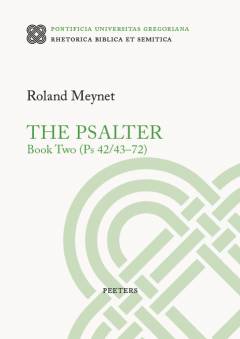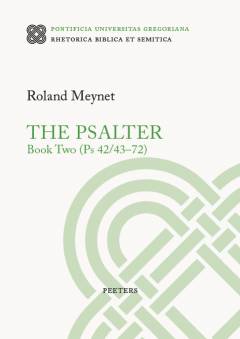
- Afhalen na 1 uur in een winkel met voorraad
- Gratis thuislevering in België vanaf € 30
- Ruim aanbod met 7 miljoen producten
- Afhalen na 1 uur in een winkel met voorraad
- Gratis thuislevering in België vanaf € 30
- Ruim aanbod met 7 miljoen producten
Zoeken
Omschrijving
The second book of the Psalter, like the first, third and fifth books, forms a highly elaborate composition. Indeed, not only each of its thirty psalms is well composed, but also each of the "sequences" that bring out two or three psalms; and finally, the five "sections" arranged in a concentric manner around the five psalms "in a low voice" (Ps 56-60). Two complementary movements form and animate the entire second book. On the one hand, evil and violence are everywhere, as are enemies. First of all, they are those from outside, pagan peoples who trample on Israel; but the psalmist later discovers that enemies from within are no less violent, and that violence comes even from his closest friends, those in whom he puts all his trust. Sin, that has always been rooted in the depths of their hearts, marks all human beings. Its most pernicious form is a "lie" which, like the lion and the viper, hides itself to attack more effectively. It is certainly no coincidence that "the serpent" is mentioned right at the centre of the central section, reminding us of the deadly venom of the serpent at the beginning which was injected into the whole of humanity. On the other hand, salvation is meant for all those who trust in God, in his faithfulness and in his truth. Hence the thanksgiving that resounds throughout the book, right to the end. It resounds not only in the mouth of the people of Israel, saved by God, but also on the lips of all the other peoples; the pagan nations, who are bringing gifts to the Temple, lifting up their hands in prayer to the one God, who is King of all the earth. They, who at the beginning of the book were presented as the enemies and oppressors of the chosen people, will join Israel at the end of the book in the same blessing promised to Abraham: "By your offspring shall all the nations of the earth blessed themselves" (Gen 22:18).
Specificaties
Betrokkenen
- Auteur(s):
- Uitgeverij:
Inhoud
- Aantal bladzijden:
- 424
- Taal:
- Engels
- Reeks:
- Reeksnummer:
- nr. 33
Eigenschappen
- Productcode (EAN):
- 9789042947108
- Verschijningsdatum:
- 9/09/2021
- Uitvoering:
- Paperback
- Formaat:
- Trade paperback (VS)
- Afmetingen:
- 170 mm x 240 mm
- Gewicht:
- 3215 g

Alleen bij Standaard Boekhandel
+ 301 punten op je klantenkaart van Standaard Boekhandel
Beoordelingen
We publiceren alleen reviews die voldoen aan de voorwaarden voor reviews. Bekijk onze voorwaarden voor reviews.








